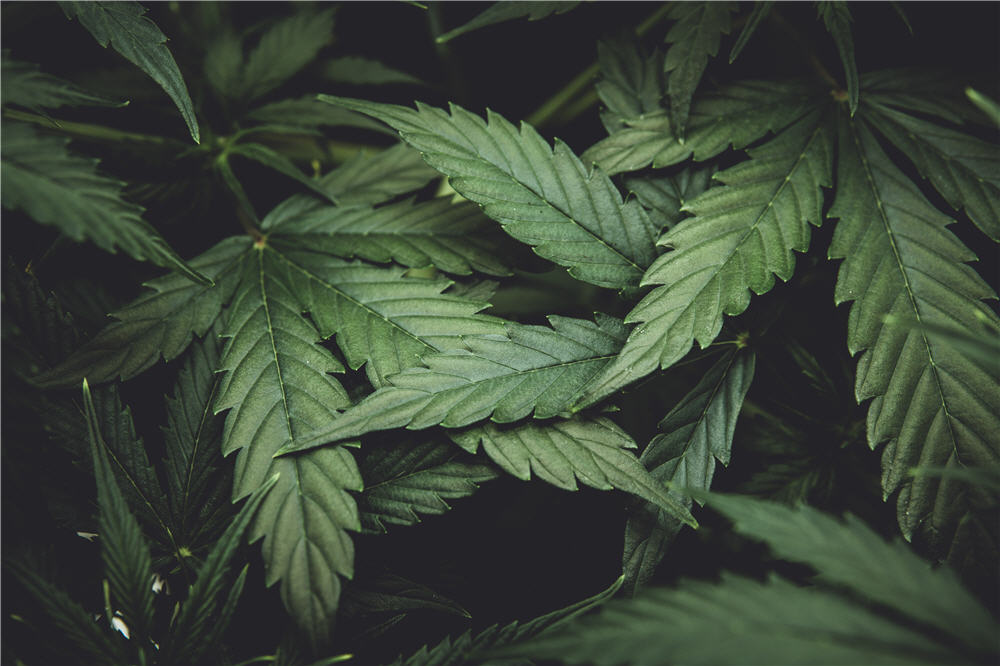Cannabis, however, remains illegal federally and (to a greater or lesser degree) in 39 states.
The person who deserves the most credit (blame?) for this current legal reality is Mitch McConnell, the Grim Reaper of the U.S. Senate.
Senate Majority Leader Mitch McConnell (R-KY) is an enthusiastic supporter of legalized hemp. Indeed, as the Republican Gatekeeper of the Senate, hemp could not have been legalized without his support. McConnell has envisioned a thriving hemp industry in his home state of Kentucky.
However, the Grim Reaper has been equally vocal as an opponent of cannabis legalization in the United States. “Not on my watch” has been McConnell’s credo. And this leads to Mitch’s Mess.
Hemp, a sub-species of cannabis, contains a much lower percentage of THC than ordinary cannabis. THC is the mildly psychoactive ingredient in the cannabis plant. But those concentrations are still greater than zero.
Legally, hemp is being defined in the U.S. (and many jurisdictions) as cannabis with THC content below 0.3%. However, this is a completely arbitrary distinction. And that fact alone should make it clear to many readers how and why Mitch McConnell has created chaos in (anti) cannabis law enforcement.
What is “hemp” and what is “cannabis”, legally? This has become a thorny question for U.S. courts, for several reasons.
From a practical standpoint, there has been no testing procedure to objectively distinguish legal hemp from illegal (in certain states) cannabis.
The legal definition of hemp is not black-and-white (despite its arbitrary nature). Rather, it is a legal gray area.
What is hemp and what is cannabis? If a court cannot answer that question in a scientific manner, with objectivity and certainty, then convicting anyone for a cannabis-related offense becomes impossible in many contexts.
Even worse is the difficulty in attempting to enforce a completely arbitrary legal distinction. The draft rules just published by the USDA for the hemp industry illustrate this problem.

USDA will not include a seed certification program in this rule because the same seeds grown in different geographical locations and growing conditions can react differently. For example, the same seeds used in one State to produce hemp with THC concentrations less than 0.3% can produce hemp plants with THC concentrations of more than 0.3% when planted in a different State. [emphasis mine]
Grow a particular strain of plant in one part of the state and it produces a crop with 0.27% THC: legal hemp. Grow the same strain a few miles away, with slightly different soil/climate conditions and it produces a crop with 0.32% THC: illegal cannabis.
The legal chaos gets even worse when it comes to manufactured cannabis products. Current testing for THC can yield variable results for the same product, depending on the testing methodology.
This is a particular problem with respect to testing cannabis-infused edible products. Test an infused chocolate one day and it will register as “hemp infused” (<0.3%THC). Test the same product the next day using even slightly different methodology, and the product suddenly becomes “cannabis-infused” (>0.3% THC).
Mitch’s Mess.
It is ironic (and hilarious) that a conservative Republican Senator who has been adamantly opposed to cannabis legalization is now primarily responsible for creating chaos in enforcing anti-cannabis laws.
This is a gigantic mess for U.S. law enforcement in any state where cannabis isn’t (yet) fully legal. It is an equally enormous political quandary for McConnell itself.
McConnell’s problem is that the only easy way out of Mitch’s Mess is full cannabis legalization. More hilarious irony. By pushing through the legalization of hemp, McConnell may have made the legalization of cannabis inevitable.
State law enforcement officials claim that they can adapt their THC testing (at least for regular plant material) to achieve the necessary degree of legal certainty, but there is a caveat.
The arrival of industrial hemp in South Carolina recently prompted law enforcement agencies to change how they test plant material, turning to a new method to differentiate between marijuana and legal cannabis — varieties of the same plant.
The State Law Enforcement Division in December terminated a program that for decades trained hundreds of officers around the state to test plant material. Now, marijuana analysis will only be performed by scientists, a move that some officials say will likely create a significant backlog at drug labs.
The State Law Enforcement Division in December terminated a program that for decades trained hundreds of officers around the state to test plant material. Now, marijuana analysis will only be performed by scientists, a move that some officials say will likely create a significant backlog at drug labs.
More time. More expense. More taxpayer dollars being wasted to prosecute people for something that should never have been a crime.
And in the case of any prosecutions for cannabis “possession” related offenses, such convictions will likely be erased in the not-too-distant future. Both at the state and federal level, legalization advocates are now adamant that expungement of criminal records for cannabis-related offenses must accompany legalization.
States are spending even more tax dollars and squandering even more law enforcement resources all for the sake of generating temporary criminal convictions.
It’s Mitch’s Mess. And the only way out is full cannabis legalization, so that U.S. courts don’t waste any more time/effort/money debating how many angels can dance on the head of a pin.
Perhaps this explains why McConnell didn’t mind the national publicity surrounding his recent “private lunch” with representatives of the U.S. legal cannabis industry. The Grim Reaper may be creating a new persona for himself: Marijuana Mitch.


